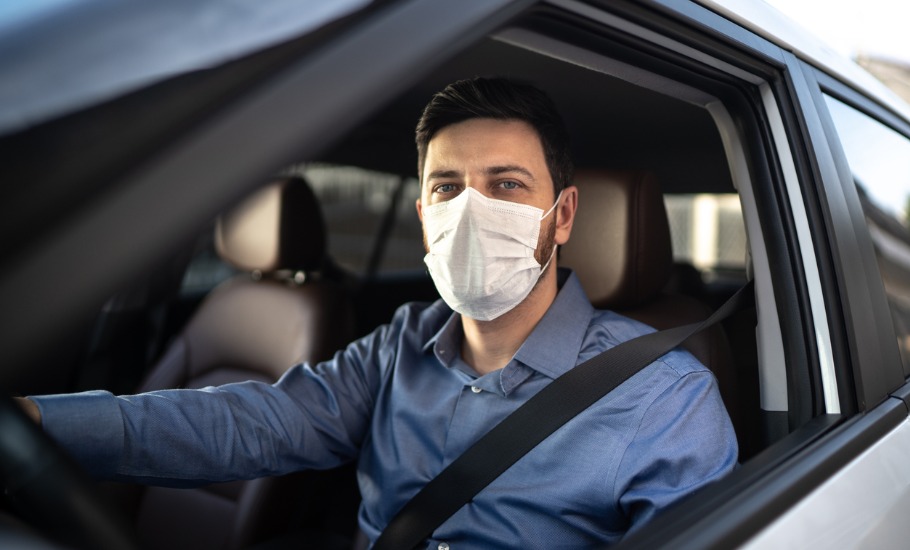
COVID-19 outbreak may slam brakes on app-based cab services
Health experts, scientists, and researchers across the globe have attempted to foresee how the post-coronavirus world would look. Some say maintaining social distancing would become a part of the societal norms, others said a sanitiser will become man’s best friend.

Health experts, scientists, and researchers across the globe have attempted to foresee how the post-coronavirus world would look. Some say maintaining social distancing would become a part of the societal norms, others said a sanitiser will become man’s best friend.
Things may change or not but it won’t be an exaggeration to say that travel methods and mobility will see a drastic flip.
A survey by Indian startup Zekardo predicts that there will be a 22 per cent increase in the usage of personal vehicles in the post-COVID-19 world.
It also said that there would be a 7 per cent rise in people choosing individual office cabs for commute, however, indicating a 10 per cent drop in shared modes of transport, including app-based taxi-services, being chosen by people.
The post-coronavirus era could be an opportunity for the automotive manufacturers to recover their losses, following the fall in demand for cab travel.
Related news: Transition to BS-VI may see little gain for auto makers
Earlier, the technological disruption predictions gave a different outlook for the personal vehicles market as they said the car hailing/sharing apps would spell doom for the car market, however, the post-pandemic era could prove to be a paradigm shift.
“Our survey indicated that car owners will prefer their personal owned vehicles over ride-sharing app-based cab services, local taxis operated by local fleet operators and state transport systems,” Karunakar Dubey, Founder & CEO, Zekardo Automotive Solutions told online website carandbike.
As per the survey, about 38 per cent of the people surveyed said they were skeptical about the taxi driver’s health and hygiene of the vehicle and about 30 per cent of the respondents believed the passenger (s) health conditions who travelled in the cab previously should also be considered while choosing the option.
The survey further explained that about 33 per cent people would be worried about the hygiene, cleanliness and sanitation of the car.
“Concepts such as driving customer intimacy through discounting or freebies will be redundant. Combining digital transformation, social distancing, and lean process will be the new cocktail for achieving customer trust,” Dubey said.
With concepts such as the price differentiation between the BS6 and BS4 models of the vehicles and limited availability of the BS6 versions in the upcoming months could also give rise to the second-hand cars market and the two-wheelers industry, feels Ashutosh Pandey, CEO of the used cars industry giant Mahindra First Choice Wheels.
Related news: Motorcycle enthusiasts can check out these affordable bikes to invest in
Speaking to carandbike, Pandey said, “As the country limps back to normalcy in the coming months, used cars is one of the sectors that stands to recover the fastest. There is a likelihood of customers down-trading and seeking value for money invested, and within auto, used cars probably has the best price-value equation. Several two-wheeler customers might choose to upgrade to a used vehicle too.”
Even as the way people travel may see a drastic shift, many of them who rely on cabs and app-based taxi services for their daily commute feel that they would be more cautious of their surroundings while travelling but it would be impossible to avoid the cabs as a travel mode.
“I honestly believe cabs are safer than public transport like autos and buses. Ola and Uber have promised to take extra precautions like ensuring the drivers’ health and providing hand sanitizers in the cars, but that remains to be seen,” Gautam Sunder, a journalist working in Chennai told The Federal.
“Obviously using a personal vehicle makes more sense, but for those of us who don’t have one, I think cabs are the second safest option to commute. I’ll have to wear a mask for the duration of the ride, sit behind the driver’s seat and try not to touch the windows or doors too often. It’s not 100 percent ideal but it’s the best we got, and I think we will stay safe if we follow the proper measures,” he added.

